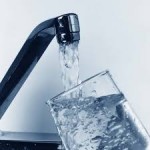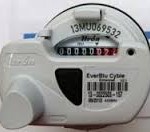 Despite the increasing volume and intensity of the water charges protests I think it is fair to say that everybody knows that we have to pay for a domestic water supply, whether as part of general taxation or by direct water charges.
Despite the increasing volume and intensity of the water charges protests I think it is fair to say that everybody knows that we have to pay for a domestic water supply, whether as part of general taxation or by direct water charges.
The biggest incentive for introducing direct metered water charges is that it will prevent waste, which of course will bring down the cost of providing the service. In fact direct water charges based solely on consumption would have a self perpetuating “reduction in costs” spiral.
The biggest problem we currently face is the deplorable state of the existing water infrastructure, years of under investment, haphazard management and a lack of joined up thinking with thirty four local authorities competing for central tax resources. We need some serious investment in the infrastructure and the best way to do this is by being able to access private funding in the immediate future, with the ongoing water charges being used to pay back the loans.
The only long term solution to managing our water is by metering and pay per use.
One of the biggest objections put forward by the opponents of water charges is that we already pay for water through general taxation and water charges are in fact just double taxation. With tax revenues growing as the economy recovers, we don’t need extra taxes so we need to look at a mechanism that moves us to a pay per use for water model with a very visible corresponding reduction in general taxes. This could be achieved by using refundable tax credits
Definition:
A refundable tax credit is a tax credit that is treated as a payment and thus can be refunded to the taxpayer by Revenue. Refundable credits can be used strategically to help offset certain types of taxes that normally cannot be reduced, and they can also produce a tax refund that is larger than the amount of money a person actually paid in during the year.
We should define an acceptable usage policy. If we assume that our demographics are similar to the UK and they have had metering in place for twenty years, we can use their numbers as a starting point. In the UK, average usage is 150 litres per person per day. This is equivalent to 54,750 litres per person per year. Looking at the Irish Water website this would be the equivalent of 54.75 M³ of water (a M³ is 1000 litres of water) @ €2.44 per M³, which would be €133.59 per person per year.
I believe that we should declare this number, whatever it will be, and then implement a Refundable Tax Credit regime immediately to neutralise the effect on Irish Water customers. People will pay for water but they will see a real reduction in their general taxes to compensate. People who do not pay income tax, for whatever reason, do still pay taxes in the form of VAT on anything they purchase so these people will simply be getting a refund on the VAT they pay as they go about their daily lives. This will prevent the refund being regarded as an extra social welfare payment.
On the basis that the transition from 34 councils looking after water to a single water authority should have been regarded a five year program, I suggest that this system be implemented for five years or until water leakage rates are below 26% (The worst leakage rate in the UK) and all households have been metered.
After five years or once the system is completely in place, with leakage rates below 25% and all households being metered, households would be charged for the actual amount of water they use and the rebate would be capped at the Refundable tax Credit rate which would be the same as the current estimated average cost per household, which is €270. This rebate would then become part of the normal yearly Government Budget deliberations.
During the five year period anyone with a water meter that uses less than the allocated average would still receive the full Refundable Tax Credit as an incentive to conserve water. For example, in my house, using the above figures and not the current figures from the Irish Water website, we would have a water bill for three people of €400.77. As an incentive to conserve water, if we used less that the allowance we would still get the €400.77 rebate
The transition from the current dysfunctional system to a single water utility is a mammoth undertaking and there will obviously be some pain in the transition but the prize is well worth the effort. The initial Irish Water business plan on how they will set about achieving this can be found here, Irish Water Proposed Capital Investment Plan
As I said at the beginning, we all know we have to pay for water, the only way to do this is by pay per use but we also need to show people that the water charges are transferred from general taxation in a very visible way. The Refundable Tax Credit……
Of course the charges for water also includes the cost of disposing of our waste water because other that which we drink, all water that comes into the house is sent back out again through our waste water systems
